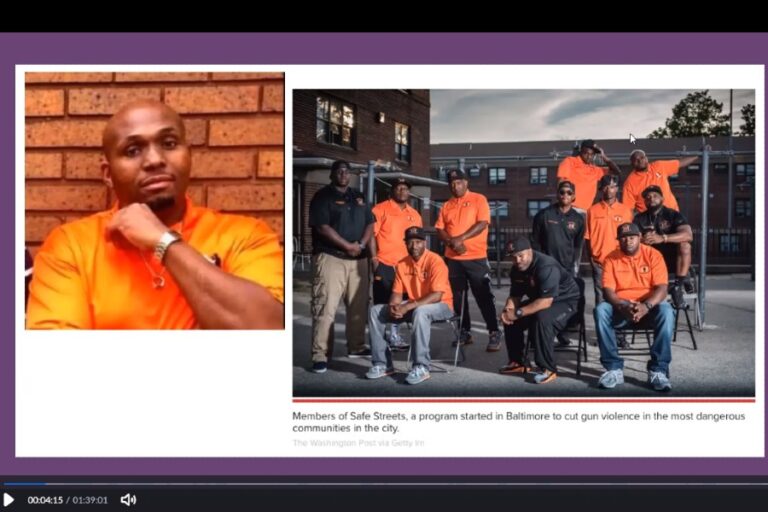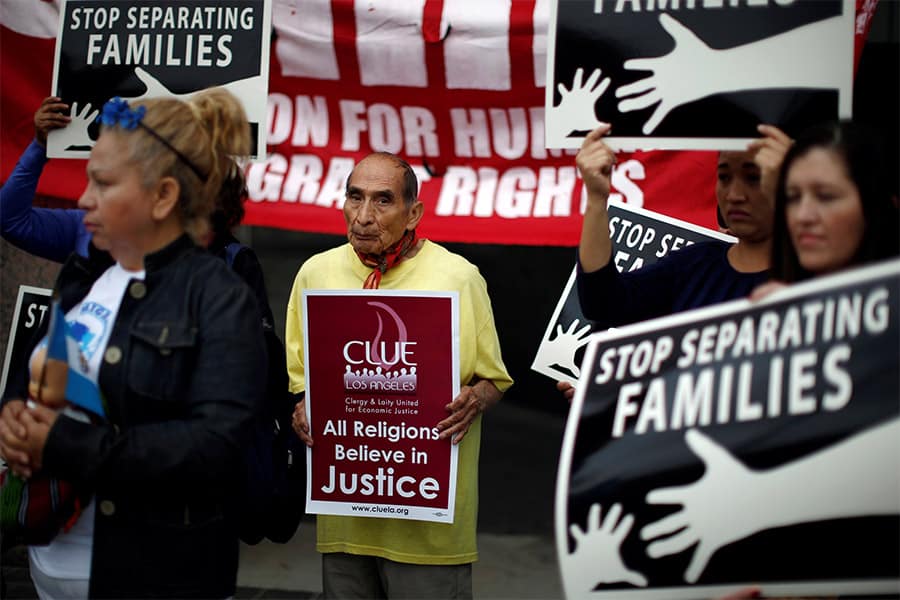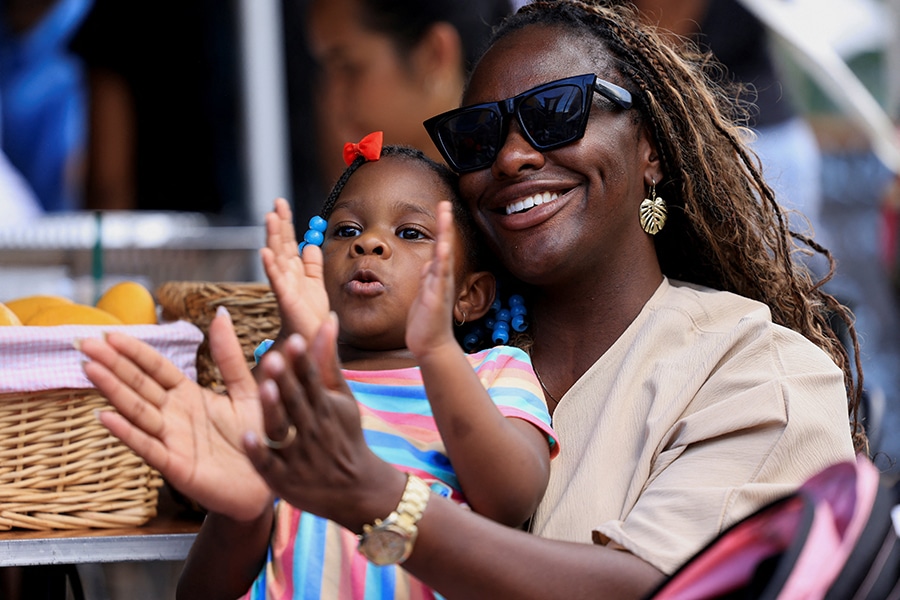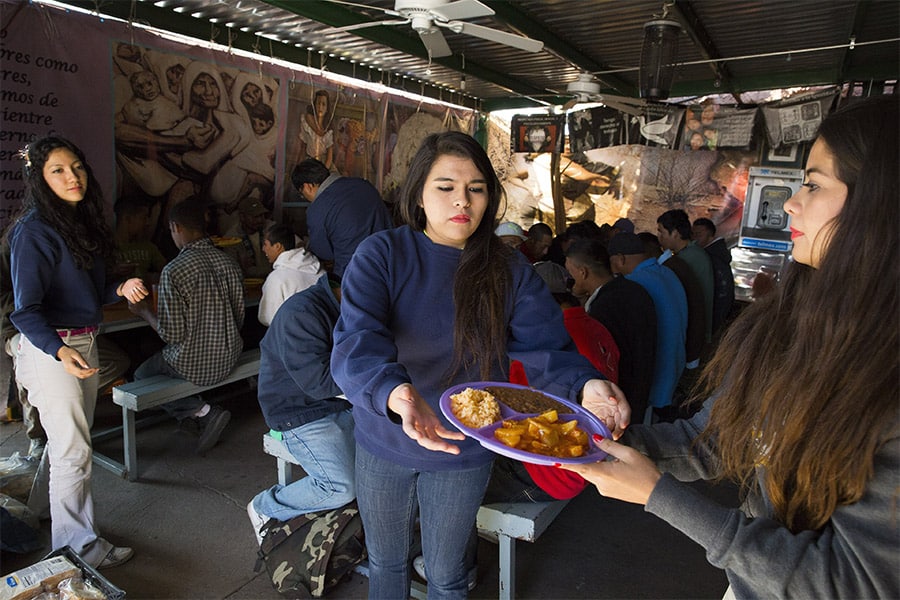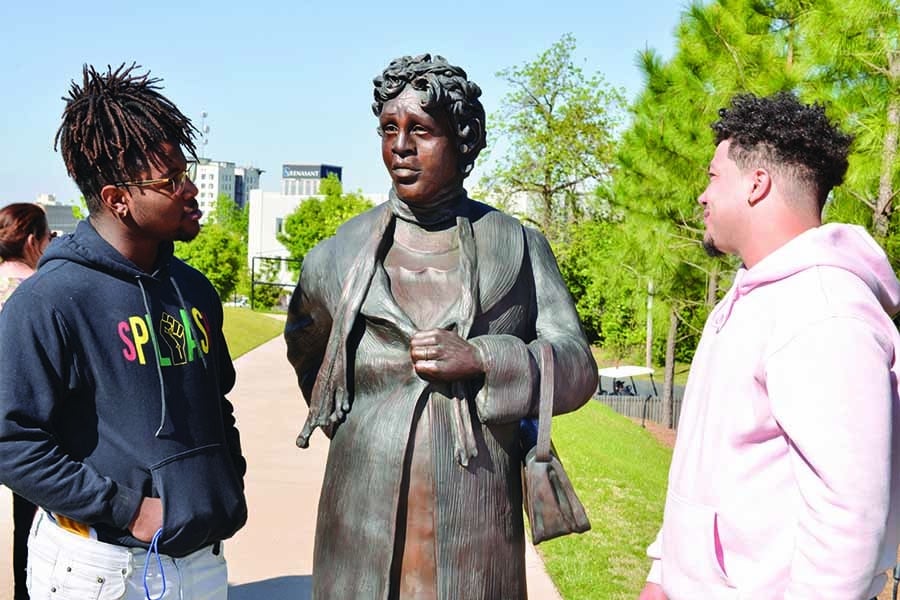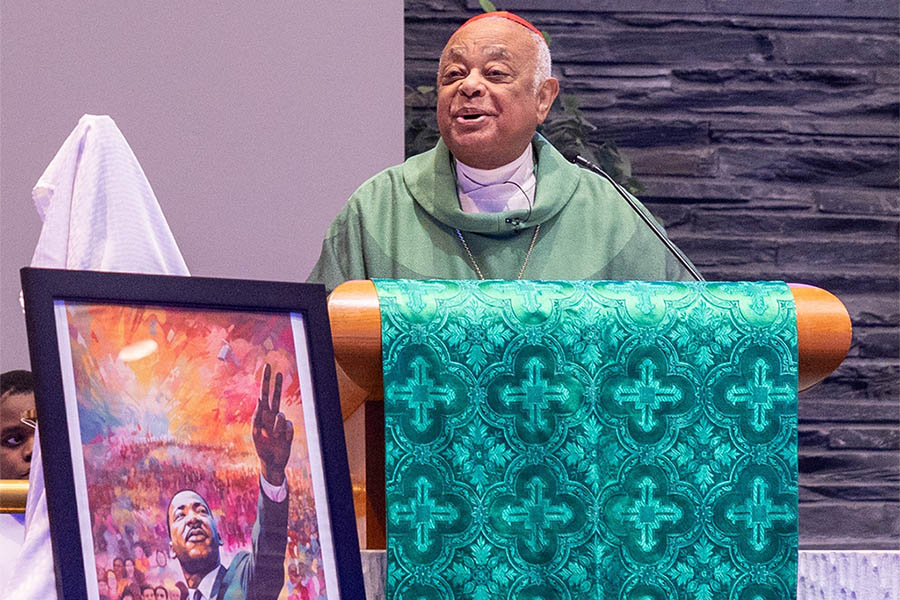With the murder of Safe Streets organizer Dante Barksdale fresh in their minds, advocates for reducing violence in Baltimore City said during a Jan. 26 video conference that respect and dignity help them reach out to a suffering community.
The Zoom session of Theology Uncorked, presented by the Ignatian Volunteer Corps, began with a prayer, led by Jesuit Father Rick Malloy, who mentioned Barksdale, 46, who was fatally shot Jan. 17.
“The city lost a great advocate and peace builder in the city,” Father Malloy said.
Kim Lamberty, director for Justice, Peace and Integrity of Creation, of the Washington, D.C.-based Stuart Center, added that “every human person has the spark of the divine.”
“Each person is better than the worst thing they’ve ever done,” she said.
The call of Genesis, the Gospel and the words of Pope Francis call us not only to love others but “to seek the best for their lives,” Lamberty said. She explained that means meeting others in their poverty, violence, trauma and poor education, and addressing their needs. “Francis calls the church to do that work,” she said.
Greg Marshburn, director of Catholic Charities Safe Streets in the Sandtown-Winchester community, said he works with 10 others to interrupt violence on the streets where Freddie Gray Jr. lived. Catholic Charities also sponsors Safe Streets in Brooklyn-Curtis Bay, one of 10 sections of the city-run program. It lost a valued leader when Barksdale was murdered in Douglass Homes.
“Violence is a disease that can be cured,” Marshburn said. He noted he comes from the streets, having been shot, served time in prison and overcome addiction.
“I understand the culture. I’ve lived the culture,” he said, noting that makes him a credible messenger who can speak with empathy and nurture trust. Respect and dignity are essential, he added.
“You’re caring about somebody who doesn’t care about themselves,” Marshburn said.
Safe Streets canvasses troubled neighborhoods, mediates conflict and sponsors community events in an effort to change behavior.
“The more we do these things the more we’ve got participation,” Marshburn said.
He recalled a recent situation when Safe Streets was called. In a situation where people usually bring their cameras to witness the violence, instead they told Marshburn they would mediate the conflict. “That was really big for us.”
He noted that about 75 percent of homicides are due to revenge or retaliation.
“ ‘What you looking at?’ can result in a death,” Marshburn said.
While Marshburn works to prevent homicides, Annette March-Grier supports the survivors of homicides. She said she started Roberta’s House to offer support to grieving members of the urban community, especially children, who didn’t have resources to learn healthy coping skills.
“We became a hub for helping people,” she said.
Begun in 2007, the center is now set to move to larger quarters with expanded offerings in February. One program is designed for homicide survivors, who comprise about 40 percent of their clientele. All programs are free.
March-Grier said programs offer hope, a way to honor the deceased and an opportunity for growth instead of continuing the cycle of anger, revenge and self-destruction. “They are not alone,” said the St. Ann’s parishioner.
The coronavirus pandemic has presented its own challenges. Staff has been stretched thin while employees worry about passing the virus to family members with underlying health issues, according to Marshburn.
Even so, the number of homicides, nine in 2020, is still lower than 2016’s 17, he said.
March-Grier said referrals have dropped during the pandemic, while some clients don’t have the technology to access virtual sessions.
How can others support these efforts?
“There’s nothing anybody can do outside of funding,” Marshburn said.
He said 92 people work for Safe Streets. “They are 92 people who are not robbing you.”
Safe Streets can provide a job for someone who relies on guns and drugs for feeding their families, said Marshburn.
March-Grier said her nonprofit always needs funding and more volunteers.
Mary Ellen Russell, archdiocesan director of community affairs, suggested lobbying representatives in the Maryland General Assembly and Baltimore City Council for further support. “We could be advocates for the program,” she said.
Another option is the archdiocese’s grief ministry which reaches out to families touched by violence with prayer, food, sympathy notes and other support.
The next Theology Uncorked session will address Care of Creation in Baltimore on April 27 at 7 p.m. Go to https://ivcusa.org/ivc-offices/welcome-to-ivc-baltimore/theology-uncorked-2/ for details or to register.
To volunteer for grief ministry, go to https://www.archbalt.org/grief-ministry/.
Also see
Copyright © 2021 Catholic Review Media

